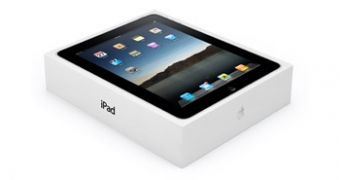Yesterday, June 22nd, Apple sold its three millionth iPad, the company confirmed in a report. Steve Jobs couldn’t be happier about his company’s achievements with the tablet device, claiming it’s working hard to get it in the hands of even more people as Apple is gearing up to ship iPads in nine additional territories beginning next month.
Apple’s official announcement, including a statement from its iconic CEO, is reproduced below.
June 22, 2010—Apple today announced that it sold its three millionth iPad yesterday, just 80 days after its introduction in the US. iPad is a revolutionary and magical product that allows users to connect with their apps, content and the Internet in a more intimate, intuitive and fun way than ever before.
“People are loving iPad as it becomes a part of their daily lives,” said Steve Jobs, Apple’s CEO. “We’re working hard to get this magical product into the hands of even more people around the world, including those in nine more countries next month.”
The report goes to mention that iPad users currently have 11,000 exclusive applications to choose from in the iTunes App Store. These apps take advantage of iPad-unique features, like the 9.7-inch screen, Multi-Touch UI, and enhanced graphics. Apple reminds customers and future buyers of the tablet device that the iPad also runs pretty much every iOS app living in the App Store, bringing the total number of compatible titles to 225,000. Other details about the product are given to further entice potential buyers.
As Apple prepares to ship the iPad in nine additional countries next month, the Mac maker is struggling to fulfill demand for its newly introduced iPhone 4. iOS 4, the operating system powering the handset, has already been released to the public for free. Owners of a new-generation iPhone or iPod touch are supported by Apple, although many are signaling issues with the process of updating to the new mobile OS.

 14 DAY TRIAL //
14 DAY TRIAL //